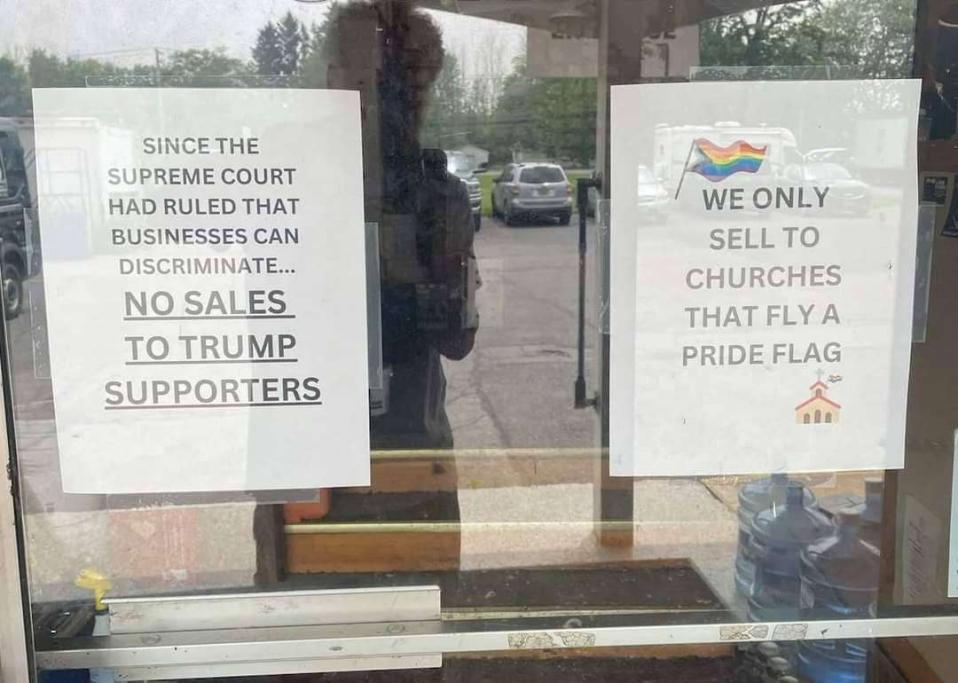view the rest of the comments
Malicious Compliance
People conforming to the letter, but not the spirit, of a request. For now, this includes text posts, images, videos and links. Please ensure that the “malicious compliance” aspect is apparent - if you’re making a text post, be sure to explain this part; if it’s an image/video/link, use the “Body” field to elaborate.
======
-
We ENCOURAGE posts about events that happened to you, or someone you know.
-
We ACCEPT (for now) reposts of good malicious compliance stories (from other platforms) which did not happen to you or someone you knew. Please use a [REPOST] tag in such situations.
-
We DO NOT ALLOW fiction, or posts that break site-wide rules.
======
Also check out the following communities:
!fakehistoryporn@lemmy.world !unethicallifeprotips@lemmy.world

They basically said a business can discriminate. The case in question was by a bakery that didn’t want to bake a wedding cake for a gay couple. SCOTUS said that was ok.
The kicker is that the claims put forth in the lawsuit by the bakery may be based on lies. The man they claimed wanted the cake isn’t gay, is already married, never ordered from the bakery, and didn’t even know he was mentioned in the court case until a reporter contacted him for comment.
This case is a web designer for wedding websites, not a bakery. The bakery thing was several years ago now.
Both rulings cute the same fundamental precedent: "expressive works"/"expressive goods" — that is, services that entail some act of creative work and/or speech, generally in endorsement.
For example, to take a less-favorable position as an example, a web designer could under this ruling post as terms of their services that they do not design websites for anyone connected with a Baptist church, because designing websites for them would require the designer to write speech and create designs participating in what the designer considered bigoted. If a Baptist group sued on these grounds, and the government said "no, you must take them on as clients", the government would be coercing a particular kind of speech from this web designer — that is, the government would be forcing the web designer to, by court order, write that speech they see as clearly bigoted.
A grocery store could not, however, say "we won't sell groceries to anyone from a Baptist church", because selling someone a gallon of milk or whatever else off the store shelves does not involve participating in any of their speech. If a grocery store did so, and a Baptist group sued, and the government said "no, you must sell them groceries", the government is not coercing any sort of speech from the grocery store owner.
That's the crux of the issue here: not Jim-Crow "we don't sell groceries to coloreds" baseline discrimination against people, but instead trying to walk the line of not using lawsuits as a weapon to coerce someone to participate in some viewpoint.
I thought it was about designing a website not baking a cake
I thought it was about designing a website not baking a cake